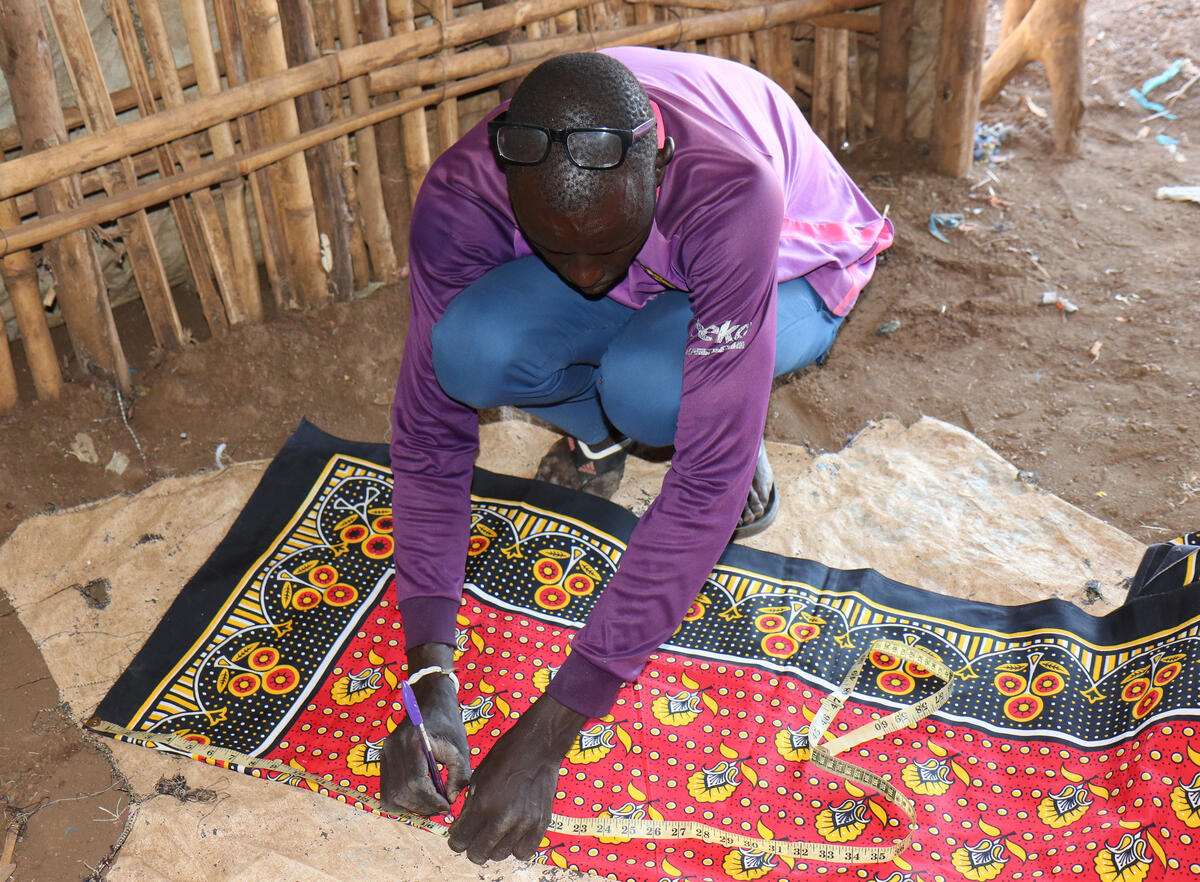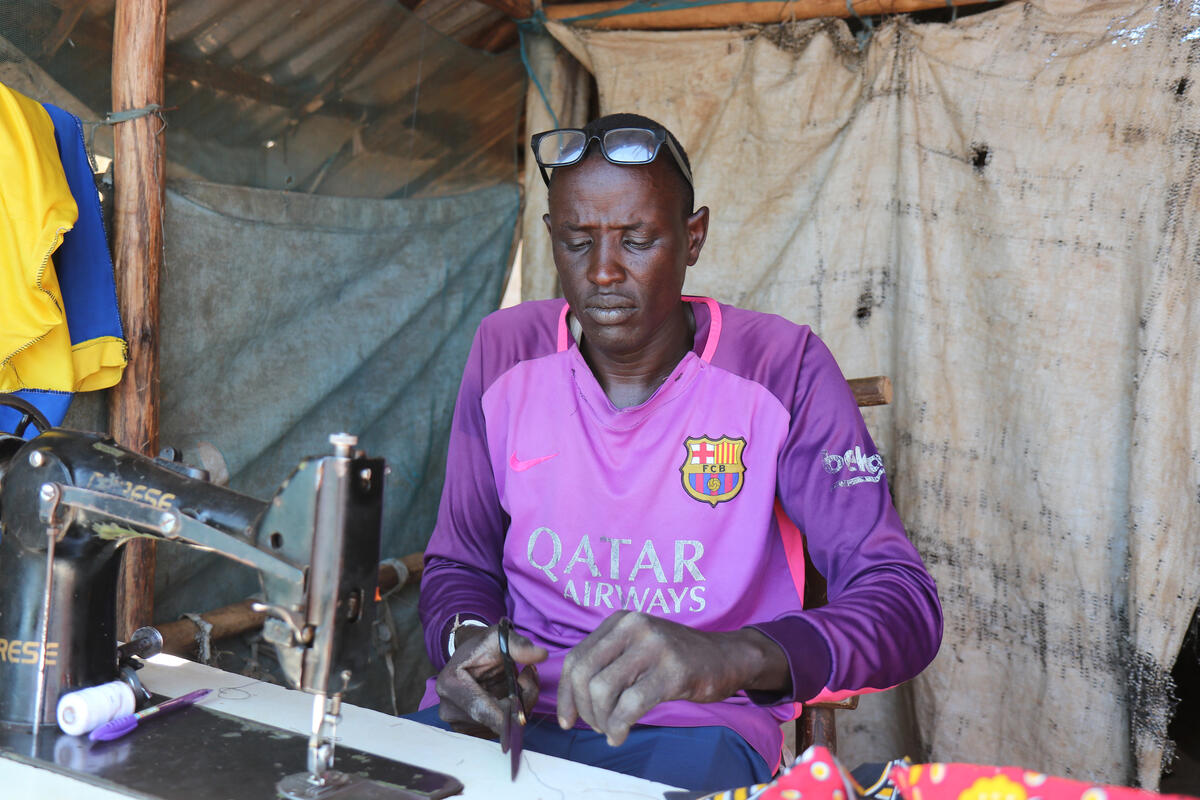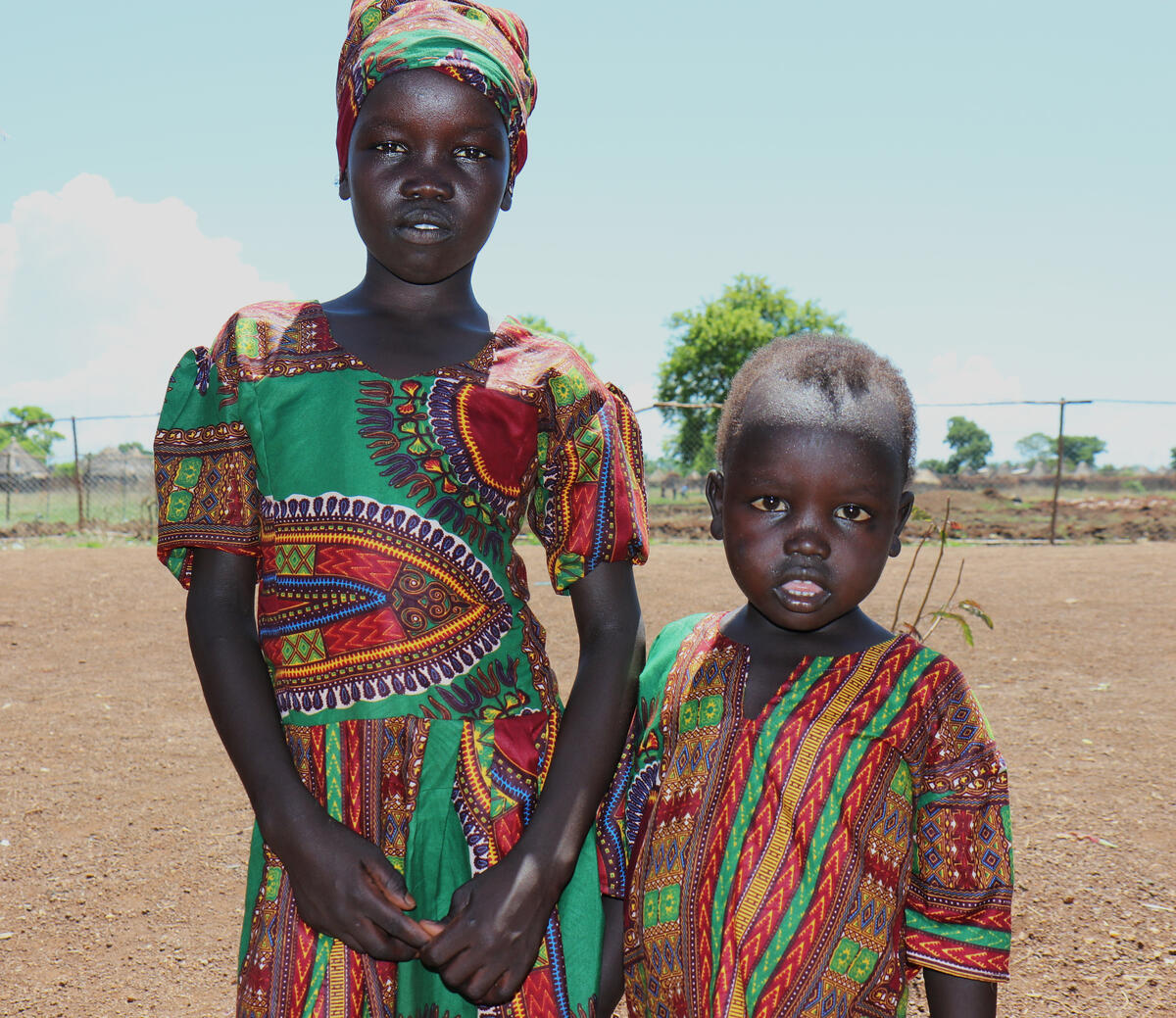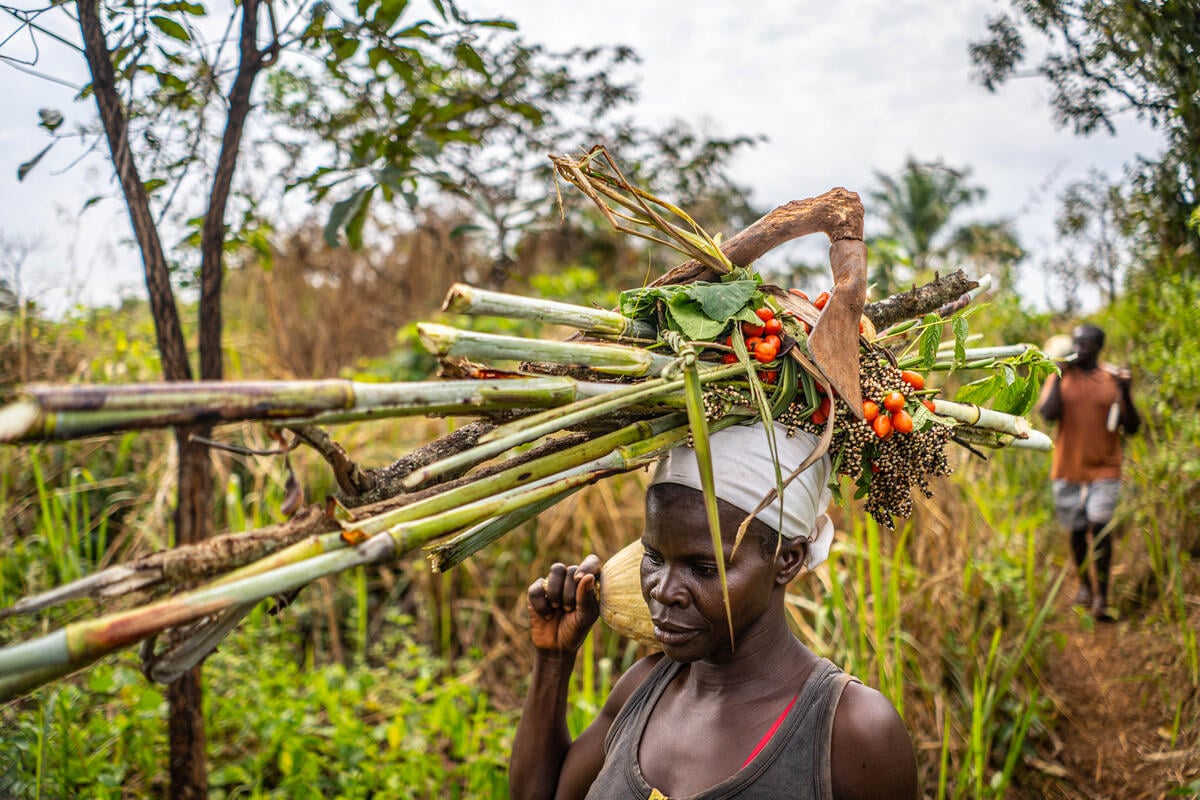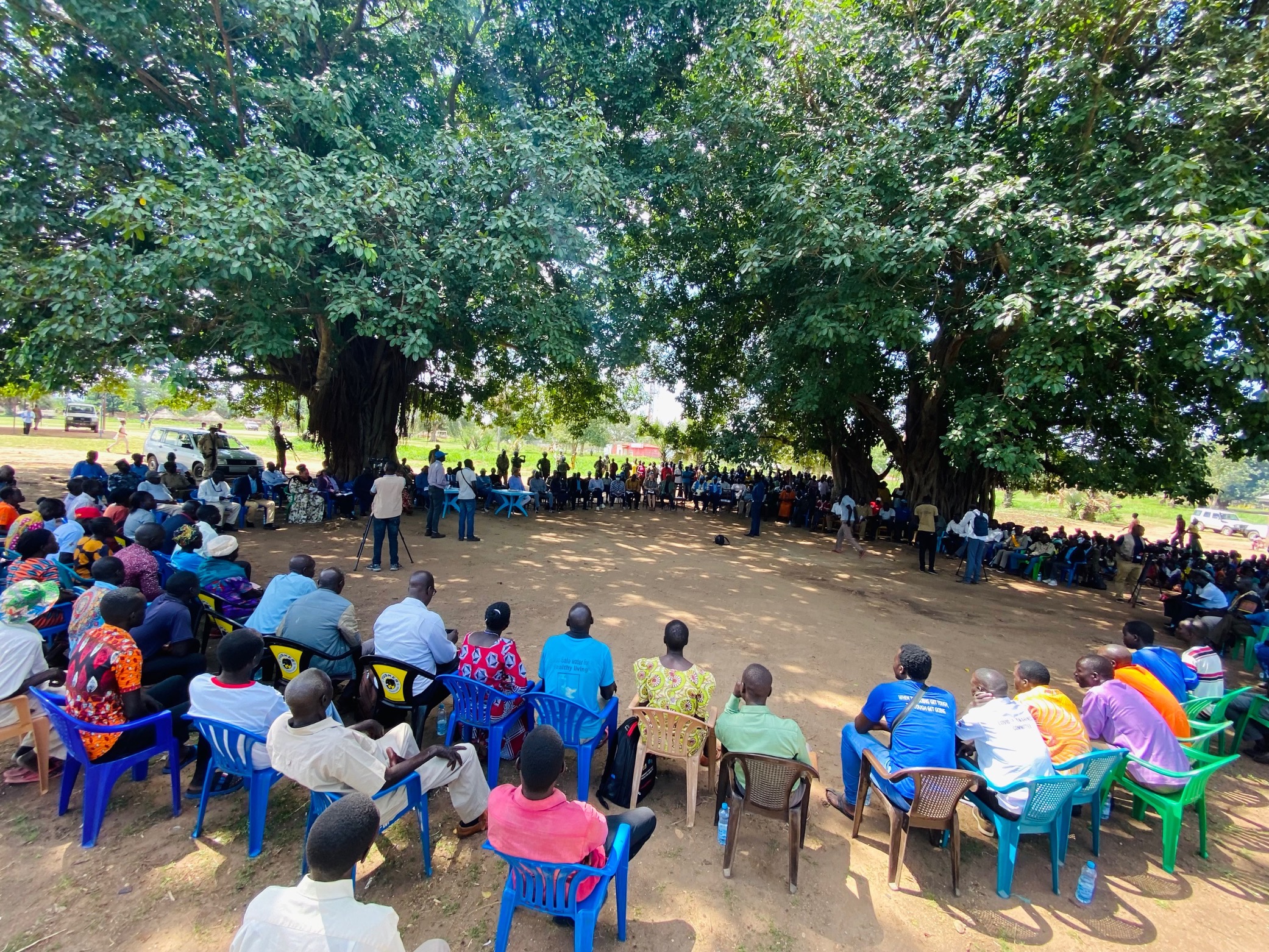Dignity for refugee children and self-reliance through dressmaking
Dignity for refugee children and self-reliance through dressmaking

Chan Deng’s hands move steadily and competently as he threads his old, worn out sewing machine and starts feeding it colourful fabric. His dressmaking skills and the trusty machine have made him a household name in western Ethiopia’s Nguenyyiel refugee camp.
When he fled South Sudan’s conflict in 2014, Chan was forced to leave everything behind, including his sewing machine. But he brought along his tailoring skills, years of experience and a strong determination to rebuild his life in the camp in Gambella region, which almost 90,000 South Sudanese refugees call home.
The 36-year-old father of four credits his cousin back home in Malakal for teaching him what would become a lifesaving skill.
“My cousin taught me everything about sewing machines and making dresses. He said it would help me in the future and he was right!” he says.
He adds that life in the camp has been hard and as such, he had to do something about it.
“I am an entrepreneur. I can’t sit and do nothing as it’s my responsibility to take care of my wife and my children,” he explains. “It’s tough but we are here because we want our children to grow up in safety.”
UNHCR, the UN Refugee Agency, and its partners offer vocational training in various areas, including tailoring and dressmaking to refugees in the camps in Gambella, but Chan was already at an advantage.
He rented a sewing machine from a group of Ethiopian dressmakers, but with the business growing and the increased number of customers, he was later able to buy it. Now, the little money he earns is saved and put aside for leaner times.
“Thanks to this man, we can now buy clothing at reasonable prices.”
“I have to prepare for those times when food rations are cut and the aid we receive isn’t enough to cover our needs,” he says
Chan soon realized that his skill could address another gap – the need for clothing for refugee children. With an average of 30 to 40 recorded childbirths a day in Nguenyyiel, many children need proper clothing. But as UNHCR and other partner agencies only provide more urgent services like food, water, shelter and health care, Chan’s skills help fill the clothing gap.
“Clothing is one of the major challenges we face as parents. Our children are naked and we can’t afford to buy them clothes,” explains Nyakong Wan, one of Chan’s customers waiting for two dresses for her children.
When the first children wearing Chan’s creations started running around the camp, news of his work quickly spread and soon, more customers came looking for him and his sewing machine.
“Thanks to this man, we can now buy clothing at reasonable prices compared to the local market,” adds Nyakong.
For Chan, his business is not just for generating much needed income to provide for his family, but also to assist his fellow refugees.
“There are no children’s clothing in the camp, so I’m playing my role in the community,” says Chan, adding that in the city, he can sell the dresses for about US$ 9 but in the camp, he sells them for about US$ 5.
“I need to consider refugees’ buying capacity,” he explains.
On a good day, Chan can make up to 20 dresses. At other times, often due to fluctuating buying capacity, business is slower. Chan is also increasingly challenged by the growing market prices on fabrics that make it impossible for him to afford producing continuous stock.
“It’s difficult to make the business grow and I’m always worrying about my machine because it’s so old. If it breaks, I’ll be lost,” says the dressmaker who has nevertheless not given up on his dreams of expansion.
“If I get more support, I would like to set up a bigger shop and train more people on how to make dresses,” he smiles.


